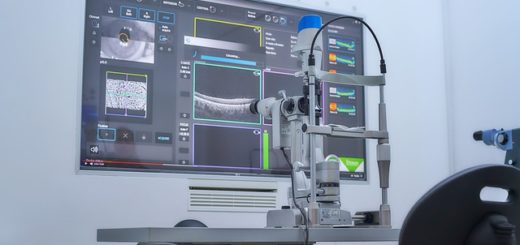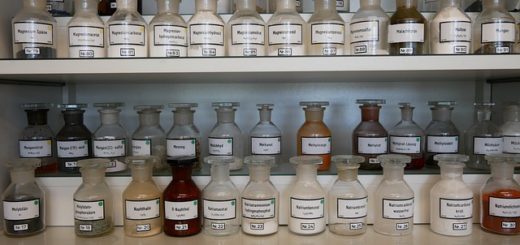Terms of Reference for Consultancy to Develop the Disability Accessibility and Mainstreaming Guidelines for TVETs in Kenya – Girl Child Network (GCN)
01. Background information
Girl Child Network (GCN) is an independent, non-political, non-religious, and non-profit organization partnering with over 300 organizations working to improve the well-being of children in Kenya with emphasis on the education of the girl child. The Network was established in 1995 as a follow-up of the Beijing Platform for Action and implementation of Article 12- The Girl Child.
Girl Child Network in partnership with CBM Kenya is implementing a three-year Project dubbed, “Injob!”,code AID012590/03/3 led by No One Out organization in partnership with the Technical and Vocational Education and Training Authority (TVETA). The overall objective is to promote the educational, social, and vocational inclusion of vulnerable and disabled youth in Kenya. To strength Education system for TVETs and promote inclusive professional Education, the project intends to develop disability accessibility and Mainstreaming guidelines to enhance and promote inclusion of trainees and learners with disabilities in the 8 Project Vocational Training Centers in Nairobi Kenya. They Include; Kiwanja, Kangemi, Dandora Greenlight, Mathare, Old Mathari, Waithaka, Ofafa and Bahati.
02.Project Overview
“Injob” is a three (3) years Project, targeting persons with disabilities, especially young people of age between 15-35. The main goal is to promote the educational, social and professional inclusion of vulnerable youth and young people with disabilities in Kenya. The Project anticipates to increase the number youth with disabilities with relevant skills, including technical and professional, and favor their participation in the labor market, both as employment and self-employment. The specific Objective of the Project is aimed at strengthening the Technical and Vocational Education and Training (TVET) system for the educational inclusion and the job placement of vulnerable youth and young people with disabilities within Nairobi TVETs.
Injob! Project recognizes that Persons With Disabilities require special attention to ensure that their needs are considered and catered for in all processes across all spheres of their lives. This is both a constitutional imperative and a directive in the legal policy frameworks that support PWDs to ensure equity and equality of opportunities for all. This is in harmony with the commitment of the United Nations Sustainable Development Goals (SDGs) of leaving no one behind and in furtherance of the Constitutional provisions captured in Article 54. According to the Disability Act of 2003, Persons with disabilities are entitled to a barrier- free and disability- friendly environment to enable them to have access to buildings, roads and other social amenities, assistive devices and other equipment to promote their mobility to seek services and operate in the most effective manner possible. This is emphasized by the sector policy for Learners and trainees with disability of 2019, which aligns the provision of education and training to the Constitution of Kenya 2010, the Basic Education Act (2013), as well as the Sustainable Development Goal No. 4 on Equitable, Inclusive Quality Education and lifelong learning for all. In this regard, the policy framework recognizes the importance of inclusive education by emphasizing on the need for all learners to learn together in an inclusive environment.
In promoting and advancing this, GCN engaged in a dialogue with the TVETA National Authority, and in particular with the leadership of the TVETA’s Disability Mainstreaming Committee (DMC), a body responsible for building a structured system within TVETs to address the needs of trainees with disabilities within the vocational education system in Kenya.
The committee expressed a strong interest in collaborating with project partners, within the proposed project, on developing Disability Accessibility and Mainstreaming Guidelines that would enable the TVETA to access, inform, accredit and support TVETs to become better, and accessible centers of learning for trainees with disabilities and others from diverse background, as defined by the objectives set within the TVETA Authority’s Strategic Plan 2018-2022. This is in acknowledgement of the current transition to a revised Strategic plan, yet to be launched. While there are in fact guidelines in the area of disability made in previous years by the Authority, these have never been updated and are poorly implemented and observed by TVETs.
Fully aware of these challenges, Girl Child Network, in partnership with TVETA Kenya seeks to engage a qualifie d and competent consultant with a view of developing Disability accessibility and Mainstreaming Guidelines. The Guidelines will be used by the TVETA to assess the status of the TVETs on matters of inclusion, access if TVETs meet bare minimum standards for them to be fully registered as full pledged institutions, and finally support inclusion and mainstreaming of trainees with disabilities in all TVETs in Kenya.
03. Main Objective of the Consultancy.
To develop Disability Accessibility and Mainstreaming Guidelines for TVETs.
04. Scope of the Work
a) Development of Disability Accessibility and Mainstreaming Guidelines
The Guidelines will have 2 Standards
- Standard 1: Bare minimum standards for the registration of TVETs. These standards should help to support the TVETA when making the decision on whether or not an institution that has applied to be registered as a TVET in Kenya meets the bare minimum standards on reasonable accommodations.
- Standard 2: standards on how to promote inclusion and mainstreaming of trainers and trainees with disabilities and other learners from diverse backgrounds. The standards should cover the physical environment, human resources, teaching, and learning resources, teaching pedagogies, and social interaction between and among trainees, staff, and non-teaching staff among others.
Once these Guidelines are approved by TVETA, CBM, TVETA, NO One Out, and other partners, 1,500 copies will be printed and distributed to 8 project TVETs.
b) The consultant will be expected to train 11 managers of the Disability Mainstreaming Committee, who are in charge of Guidelines management and implementation in TVETs. The training will last six days and will take place in Nairobi. The Committee will be responsible for updating TVETA staff who will disseminate the new guidelines through training to TVET managers and administrators in 15 different counties (Nairobi, Embu, Busia, Kitui, Machakos, Nyamira, Homa Bay, Elgeyo Marakwet, Transnzoia, Kiambu, Muranga, Kilifi, Kwale, Taita Taveta, Makueni) in the country over the 3 years.
c) The Consultant will also conduct the training for managers, teachers and staff of the 8-project target vocational training institutions in Nairobi County on the new disability mainstreaming guidelines, which will be attended by two members from each project target TVET.
05.Expected Deliverables
- 1 Disability and Accessibility Mainstreaming Guideline developed
- Data and statistics on disability within TVETs in Kenya and Nairobi County (statistics/data on employment rate disaggregated by disability among other statistics).
- 11 DMC members trained on the new Guidelines (training report produced)
- Managers, teachers, and staff of 8 project TVETs trained on the new Guidelines (report produced)
06. Methodology
The following methodologies will be used alongside others that may be recommended by the consultant;
- Desk review
- Physical Observations of the TVETs Ecosystem
- Key Informant Interviews (KIIs) with TVETA, TVETs managers and DPOs
- Focus Group Discussions (FGDs) with trainees
07. Timeframe.
This assignment is expected to run for a period of 15 working days upon award of the contract:
15days for development of the policy inclusive of 6 days of DMC co-participation for approval.
08. Academic Qualifications
- Bachelor’s Degree in, Technology Education, Special Needs Education, (Secondary Option), Childhood Special Education or social science field, with specification courses in Inclusion, Inclusive Education and research methods.
- Holders of Master’s Degree will be added advantage
09.Evaluation
- The expression of interests will be evaluated based on set criteria, as well as on the basis of competitiveness and value for money.
NB: Those that have undertaken a similar assignment will have an added advantage.
How to Apply
Interested consulting firms/ Individuals who meet the requirement under this call should send their technical and financial proposals attaching all the necessary documents (statutory, personnel and proof of previous work) through our mail to: consultancy@girlchildnetwork.org.
All submissions must include the following:
- Company profile to include official contacts, copies of Company Registration Certificate; KRA VAT, PIN registered and valid Tax Compliance certificates.
- A technical proposal describing the approach to be taken, proposed implementation schedule, proposed outcomes, and evaluation methods to be used. This should also include detail of the Firm’s experience in providing gender sensitization sessions, with at least three NGO within the last five years
- Financial proposal – in Kenya Shillings and list all costs and expenses associated with the assignment, including taxes.
- Names and resumes of professional resource persons proposed to carry out the exercise
- References- Names, phone numbers and contact people at three similar organizations who have been your clients during the last 18 months
- Any supporting information about similar projects completed for others and the corresponding results.
N/B: Kindly note that any applications not sent through our Email platform shall not be considered.
(Only Applicants with firms in Kenya and native Citizens are allowed to Apply.)
The closing date for applications is 17th July 2023. Only shortlisted firms/consultants will be contacted.








